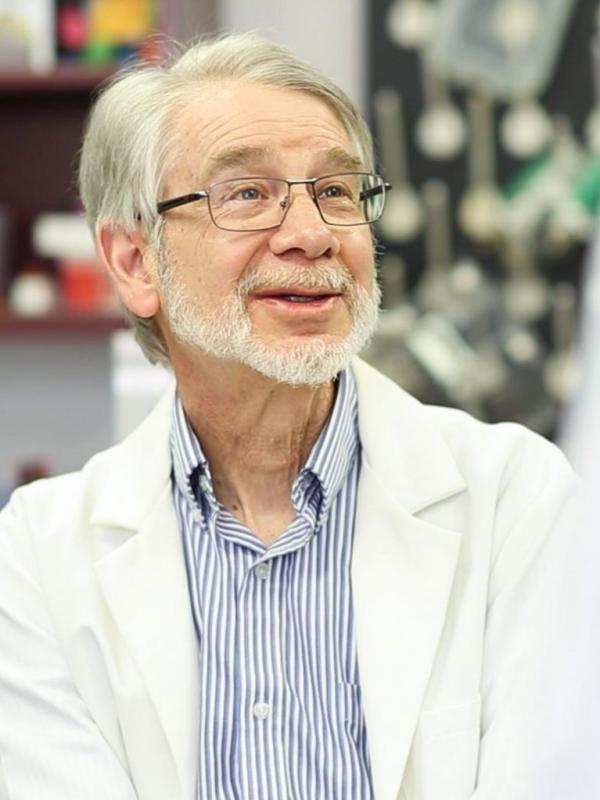Areas of Expertise
- Fundamental aspects of mRNA metabolism and the role of mRNA decay in inherited genetic disorders and cancer
Daniel R. Schoenberg is professor emeritus in the Department of Biological Chemistry and Pharmacology, The Ohio State University College of Medicine. He received his BS in biochemistry from the University of Illinois, Urbana, his Ph.D. from the University of Wisconsin McArdle Laboratory for Cancer Research, and postdoctoral work in the Department of Cell Biology, Baylor College of Medicine, Houston. He started his academic career in 1981 as an assistant professor in the Department of Pharmacology at the Uniformed Services University of the Health Sciences, Bethesda, Maryland, where was promoted to full professor in 1992. While at USUHS he created a new graduate program in Molecular and Cell Biology, and served as the director of this program until 1994. Professor Schoenberg moved to Ohio State at the end of 1994. Professor Schoenberg served on the National Science Foundation biological regulatory mechanisms panel and on the National Institutes of Heath Biochemical Endocrinology and Molecular Genetics C study sections.
Professor Schoenberg started his research career studying molecular mechanisms of estrogen action, but the focus of his work changed to studying ribonucleic acid (RNA) metabolism when his lab discovered estrogen has effects on messenger RNA (mRNA) decay. His lab was the first to show that mRNAs can be degraded by endonucleases, enzymes that cut within these nucleic acids, and was the first to purify and characterize one of these enzymes. This work was continuously supported by an NIH grant that ran from 1982 to 2016, and his overall research program was continuously funded by NIH until 2020. Some of those grants focused on mRNA processing, and the Schoenberg lab was the first to discover new RNA processing mechanisms that work at both ends of mRNA molecules. Professor Schoenberg authored more that 100 peer-reviewed papers, book chapters and commentaries, and edited a highly regarded volume of Methods in Molecular Biology. His efforts were recognized by a number of awards, including election in 2004 as a Fellow of the American Association for the Advancement of Science.
Service has always been an important aspect of Professor Schoenberg’s career. Recognizing the need for an inexpensive meeting for student and postdoctoral trainees he founded and for two years organized the regional Rustbelt RNA Meeting. This 2 day meeting brings together faculty and trainees from Ohio and surrounding states with interests in RNA research, with all of the presentations given by trainees. Professor Schoenberg also focused on building the RNA research community at Ohio State, and he created and then directed the Center for RNA Biology. Thanks to his efforts Ohio State is now recognized throughout the world as a leading RNA research institution.

